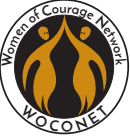WOCONET defines women’s economic empowerment as the process by which women increase
their right to economic resources and power to make decisions that benefit themselves, their
families and their communities. Investing in women’s economic empowerment sets a path for
poverty reduction and for equality between men and women. WOCONET works to ensure that
poor women have access to a full range of suitable and affordable financial services critical to
withstand shocks and fulfil their economic and social potential. We empower women to build
better livelihoods, earn more income, and create businesses that provide jobs and boost local
economies. With improved financial security, other areas of women’s lives also improve: they
can afford healthcare, to purchase uniforms for their children, and are more likely to play a
leadership role in their communities.
Women are financially excluded and yet they make up the majority of the poorest people in
Uganda today. Women continue to earn on average only 60 to 75% of what men earn. Customs
restrict women’s economic opportunities, dictating the types of jobs that women can do, or
giving husbands the right to prevent their wives from accepting jobs. Women bear
disproportionate responsibility for unpaid care work: women devote 1 to 3 hours more a day to
housework than men; 2 to 10 times the amount of time a day to care (for children, elderly, and
the sick), and 1 to 4 hours less a day to market activities.
The disadvantages and discrimination faced by women and girls severely limits women’s and
girls’ ability to lift themselves out of poverty. As a result, women are more likely to work in
informal, low-wage jobs with exploitative and unequal working conditions, and have restricted
access to affordable, quality financial products and services, like a savings account or small loan.
Only 37% of women in Uganda have access to basic financial services. WOCONET focuses its
efforts on four key pathways where it believes it can have the most impact – financial inclusion,
entrepreneurship, dignified work and inclusive value chains.
Financial inclusion
WOCONET’s Village Savings Loans Associations (VSLAs) have greatly fostered women’s
economic empowerment. VSLAs allow the most vulnerable to efficiently save and invest small
amounts of money to grow a new business. These saving programmes also give women and girls
vital financial skills to build their businesses by providing training in savings, loans and financial
literacy.
Entrepreneurship
WOCONET helps women gain access to basic financial services such as bank accounts and to
business skills training. Combined with efforts to strengthen women’s economic decision-
making power and develop a more supportive environment in both the household and the
community, this enables more women to start businesses, leading to financial independence. For
example, WOCONET is helping to provide vocational training and small loans to vulnerable
young women so that they can start their own business.
Dignified work
WOCONET works with women to ensure they have a workplace that provides adequate wages
and safe working conditions, where they are protected from sexual and gender-based violence.
For example, WOCONET is working to improve occupational health and safety through the
creation of industry standards, and to reduce workplace harassment to protect the primarily
young female garment workers.
Inclusive value chains
A value chain is the series of activities required to bring a product from its design and
manufacture to consumers. Including small-holder farmers and women in value chains and
ensuring that they receive their fair share of profit means a more equal share for everyone as a
country’s economy grows. For example, WOCONET successfully engaged small rural
associations, municipal governments and national ministries to prioritise local economic
development and fund small businesses in key value chains in addition to providing training on
gender equality awareness at the local and municipal levels.
Rebuilding livelihoods after emergencies
One of the best ways to help Women get back on their feet after a disaster is to support them to
start earning an income. We financially support women affected by disasters so that they can
purchase basic supplies, and use the money to get their livelihood back on track. We also give
specific support to rebuild livelihoods such as
a) Helping small-scale farmers and agricultural producers to rehabilitate their land
and enable them to resume producing food
b) Supporting women entrepreneurs to enable them to restart their businesses in
small-scale production, manufacture and retail
c) Assisting women with fishing kits, vegetable seed kits and tools to promote food
security and better livelihoods.
d) Supporting women-headed households to re-start their income-generating
activities in times of emergency
e) Giving cash grants to women affected by disasters so that they can purchase basic
supplies, and use the money to get their livelihood back on track.
Gender-based violence
Violence against women and girls is one of the most prevalent human rights violations. It
knows no social, economic or national boundaries. In Uganda, an estimated one in three
women will experience physical or sexual abuse in her lifetime.
Gender-based violence undermines the health, dignity, security and autonomy of its victims,
yet it remains shrouded in a culture of silence. Victims of violence can suffer sexual and
reproductive health consequences, including forced and unwanted pregnancies, unsafe
abortions, traumatic fistula, sexually transmitted infections including HIV, and even death.
WOCONET is working to further gender equality and women’s empowerment and to address the
physical and emotional consequences of gender-based violence. WOCONET’s programmes offer
psychosocial assistance, medical treatment and rape kits to survivors, and promote the right of all
women and girls to live free of violence and abuse.




